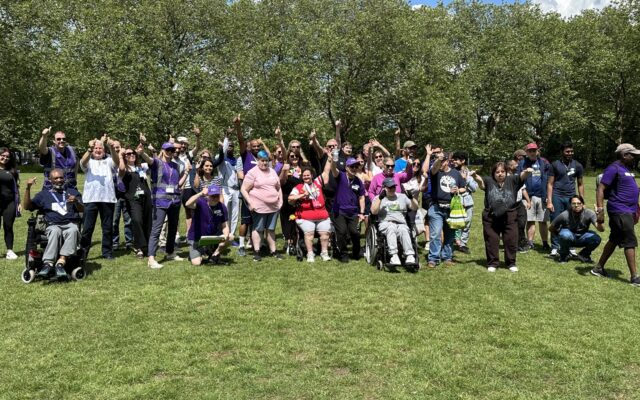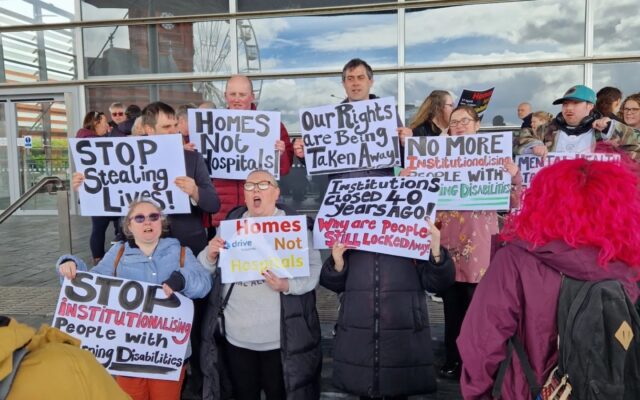The Elfrida Society’s Circles of Protection project uses volunteers to help people placed out of borough. Sarah Reilly describes how they helped Jack to enjoy a fuller life a long way from his home county.
Quote: We have to be concerned about the vulnerable people who have no family and do not receive this service. How safe are they from one review to the next?
Most inner London boroughs have insufficient accommodation locally so have little option but to place people beyond their borough with a statutory obligation to provide just one review a year. There are hundreds, if not thousands, of highly vulnerable people living out of borough whose care is monitored once a year.
Befriend and protect
Islington Council and Clinical Commissioning Group (CCG) continue to fund The Efrida Society’s Circles of Protection project (CoP), to support people with learning disabilities who live in care homes outside Islington. In this model vulnerable, isolated service users are assessed by the CoP Coordinator then paired with volunteers in their area. The role of the volunteers is two-fold: to befriend and protect.
This is Jack’s story. Jack is 89 and lived in Harperbury hospital until it closed when he became a ward of Islington Council and was placed in a care home in the North of England. Jack has learning disabilities and a diagnosis of Fragile X, he understands some language but doesn’t speak. Two years ago Jack had a stroke and is now in a wheelchair.
Jack was referred to the CoP project by his social worker who was concerned about his quality of life. The home manager seemed genuinely fond of Jack and Jack appeared comfortable with her. However, as the assessment progressed it became clear that apart from an occasional visit to the supermarket when the staff rota allowed, Jack had no life beyond the house, and now he is in a wheelchair he can longer move freely without staff support.
When the CoP Coordinator asked the home manager how Jack communicates his wishes the home manager looked blank. The Coordinator drew three faces on her note pad: happy, neutral, miserable, and asked Jack how he was feeling. He pointed straight to the miserable face.
Since that initial assessment Jack’s life has changed. Following the CoP Coordinator’s instruction the home manager created a Communication Passport with pictures of rooms in the house, food and drink, local areas, and mood faces. Jack has it with him all the time. The picture he points to most often is a mug of tea. He now attends monthly chair exercise classes, sharing the cost with several other residents who also benefit, and the home manager has arranged a taster day for Jack to try out the day centre. If he likes it he can afford to pay for a day every two weeks.
The CoP Coordinator has also been busy and has recruited two volunteer befrienders for Jack, one through the local volunteer service, the other through the church. One of the volunteers has a car and wants to take Jack out. At present checks and training are in progress and then, if all goes well, Jack’s life will expand further.
The CoP project is now in its third year and is growing in strength. It is a small project with limited capacity, and recruiting volunteers is neither quick nor easy. But the numbers of CoP befrienders are growing and those service users with befrienders now participate in their communities: playing tennis, going out for lunch, attending church services, having regular visitors to their homes. As a result their quality of life has improved and they are safer.
Medical neglect
In several cases neglect has been identified by the CoP Coordinator, particularly medical neglect and over-medication. Incident reports and safeguarding alerts have been raised and service users have been brought back into borough. But we have to be concerned about the vulnerable people who have no family and do not receive this service. How safe are they from one review to the next?
Sarah Reilly is the Elfrida Society’s Circles of Protection Coordinator




